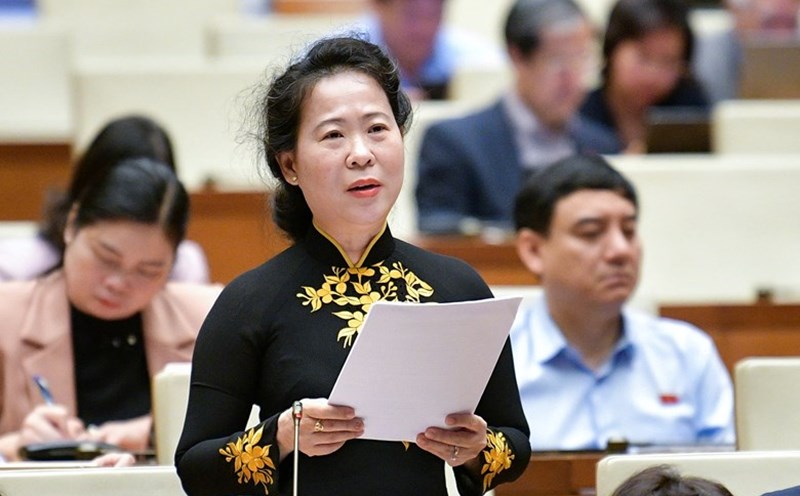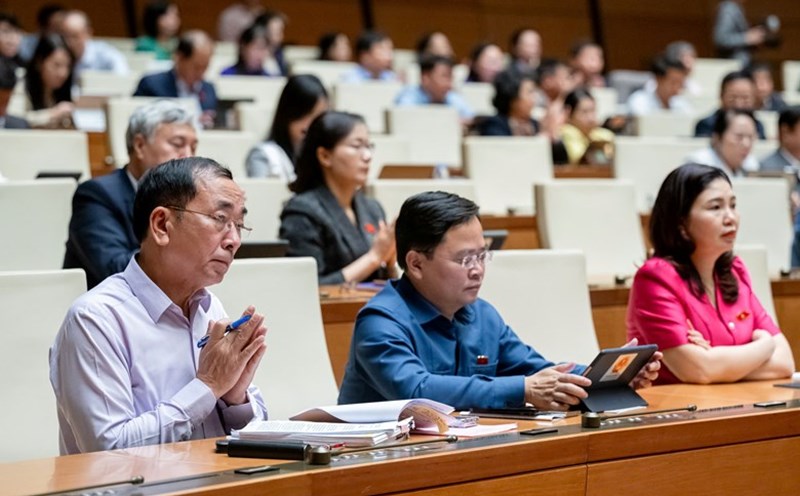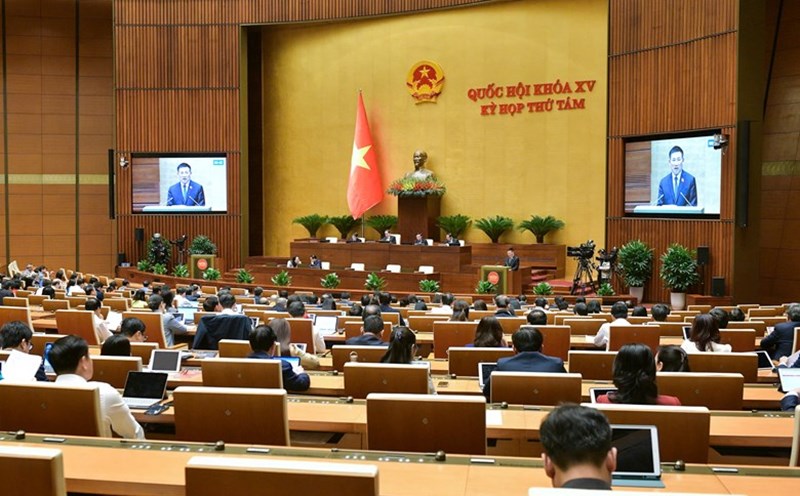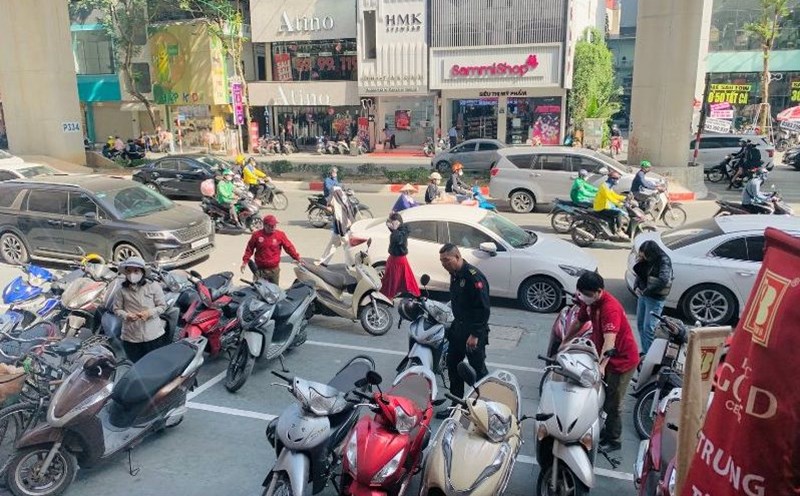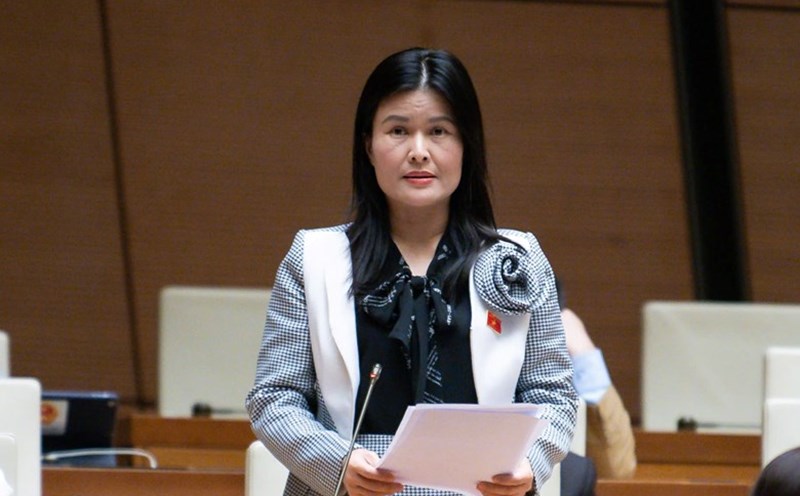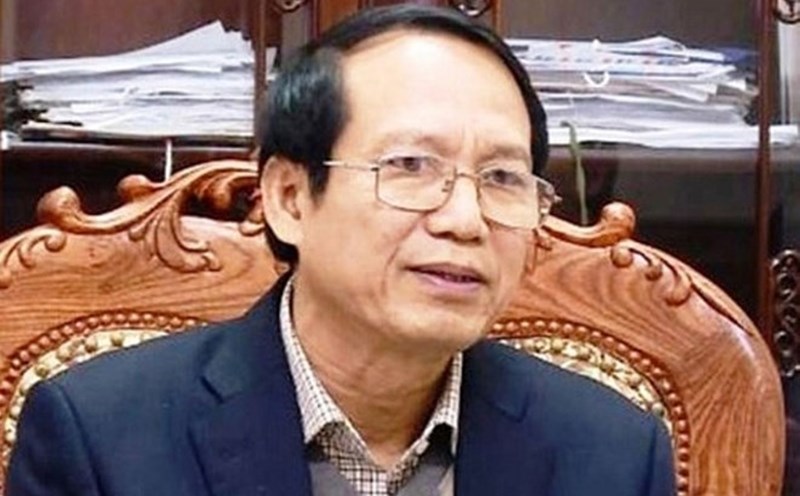On November 29, the National Assembly discussed in the hall the draft Law amending and supplementing a number of articles of the Law on Supervisory Activities of the National Assembly and People's Councils (PCs).
Speaking, delegate Nguyen Ngoc Xuan (Binh Duong) said that through the practical supervision activities in localities, the People's Councils of many places proposed that the National Assembly consider adding and expanding the subjects of supervision in Article 5 of the current law.
Accordingly, it is proposed that the People's Council be given the right to supervise the activities of central agencies at the local level such as: Tax Department, Customs, Social Insurance, State Bank at the same level.
At the same time, it is recommended to consider adding People's Council delegates with the right to question heads of vertical agencies of the Central Government operating in the locality.
The delegate analyzed that, based on Article 113 of the Constitution, the People's Council is a local state power agency representing the will, aspirations and mastery of the local people, elected by the local people, and responsible to the local people and the higher-level state agency.
The People's Council decides on local issues as prescribed by law, supervises compliance with the Constitution and laws at the local level, and implements the People's Council's resolutions.
According to the delegate, the scope of supervision of the People's Council at the local level is very broad, covering all subjects and fields in the area, including agencies, organizations and individuals in complying with the Constitution and laws, ensuring that the laws are implemented synchronously, uniformly and effectively.
The delegate emphasized that reality shows that competent agencies, units, individuals and other agencies and organizations in society must comply with the law and must implement solutions and measures for socio-economic development, national defense and security as resolved by the People's Council.
In which, the central vertical agencies at the local level must perform such tasks as: Tax collection, social insurance; measures to ensure national defense and security, and implement financial, economic, environmental and social policies issued by the People's Council.
Officially regulate the People's Council's supervision of the activities of central state agencies of the same level located in the locality, in order to perfect the mechanism of controlling state power at the local level.
Thereby, helping the central government to effectively manage the implementation of policies and laws at the local level, while ensuring that the central government's orientations and goals assigned to localities are effectively implemented.
With the People's Council's control mechanism, state agencies, officials, civil servants and public employees must be accountable and commit to action before the people's representative body, the delegate emphasized.
Therefore, the delegates recommended that the National Assembly consider adding the authority to supervise the activities of central agencies at the local level to the People's Councils at the same level and stipulate the right of People's Council delegates to question the heads of those agencies.
This content is consistent with the Constitution, law and practice, ensuring the control of the exercise of State power in the right direction.
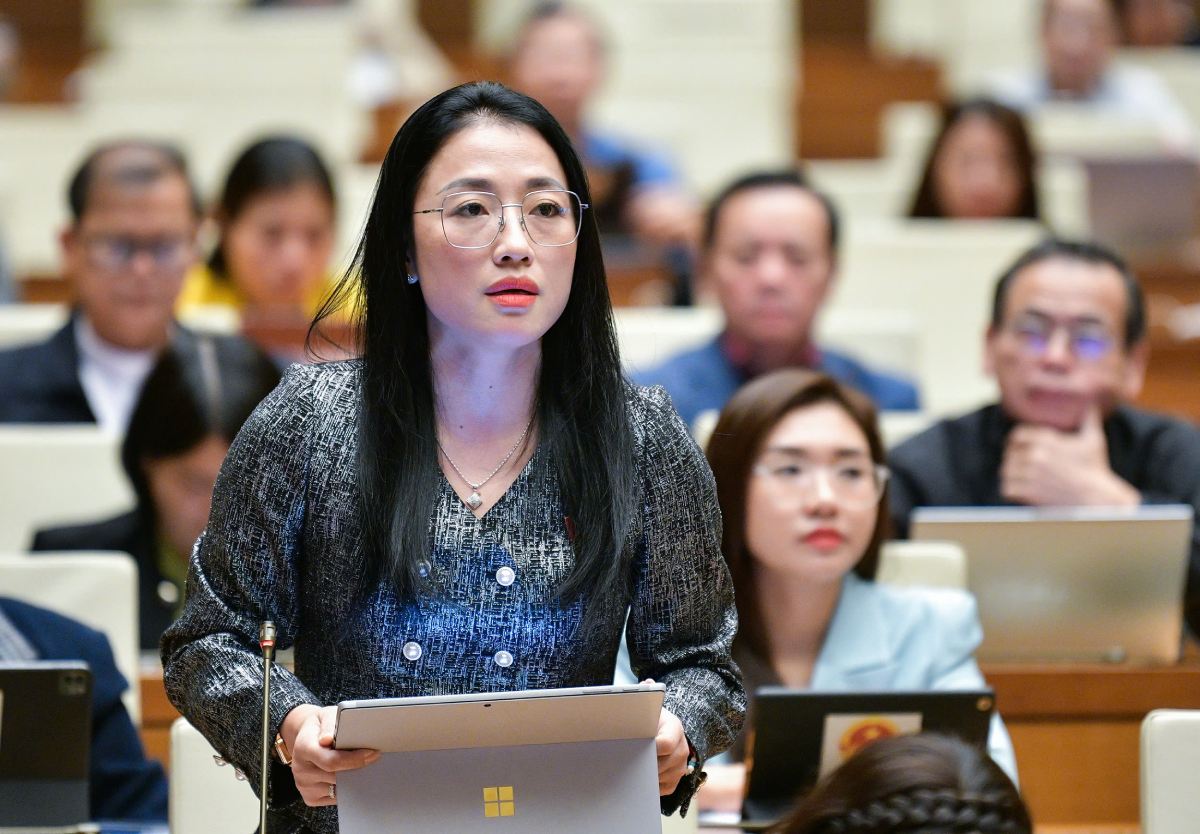
Regarding the addition of new principles of supervision activities, delegate Tran Khanh Thu (Thai Binh) said that the National Assembly has three basic functions: making laws, supervising and deciding on important issues of the country.
So the work of innovating thinking in law-making requires that supervision must be innovated and that the decision-making on fundamental issues of the country must also be innovated.
Therefore, delegates unanimously chose option 1 in the draft, which is to add clause 2a after clause 2 of Article 3: Ensuring the improvement of the effectiveness of state management, law making and enforcement, and deciding on important issues of the country and localities.

